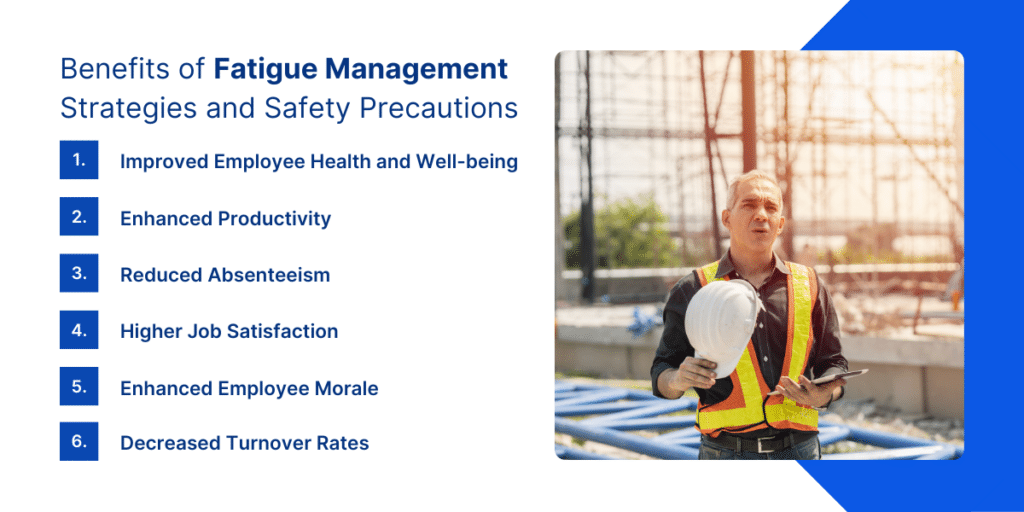The evolution of operational practices within the nuclear power industry stands at a critical juncture, underscored by an urgent need for modernization to increase recruitment and retention in nuclear. The discourse at the NRC RIC highlighted a significant gap in existing methodologies, pointing towards an industry-wide imperative to reassess and revitalize workforce management and engagement strategies. This need transcends mere technological adoption, advocating for a deep-seated reform in how the industry approaches employee scheduling, fatigue management, and broader workforce planning.
Conventional scheduling practices within the nuclear power sector have long been mired in inefficiencies stemming from manual processes, inflexibility, and opacity. Such methodologies not only undermine operational efficiency but also severely impact employee engagement and retention—factors crucial in an industry grappling with attracting fresh talent amidst stringent safety considerations and complex regulatory frameworks, particularly concerning fatigue management.
Improve Recruitment & Retention
Attracting skilled professionals to the nuclear sector is crucial for driving innovation and maintaining operational excellence. Whether it’s engineers designing cutting-edge reactor systems, scientists researching new materials for fuel cycles, or technicians ensuring the safety and efficiency of nuclear facilities, every role plays a pivotal part in advancing the industry.
Investing in education and training programs is also essential for nurturing the next generation of nuclear professionals. Collaborations between industry stakeholders, academic institutions, and government agencies can facilitate the development of specialized curricula, internships, and apprenticeships tailored to the unique demands of the nuclear field, ensuring a steady pipeline of skilled workers for the future.
While recruitment is crucial for maintaining a vibrant workforce, retaining experienced personnel is equally vital for ensuring operational continuity and knowledge transfer within the industry. With many seasoned professionals approaching retirement age, retaining their expertise becomes paramount to avoid a potential skills gap. Promoting a culture of safety, collaboration, and innovation cultivates a sense of purpose and belonging among employees, enhancing their engagement and loyalty to their organizations.
Fatigue Management & Compliance
A lack of fatigue compliance within the nuclear power industry presents a myriad of challenges, posing significant risks not just to operational efficiency but, more critically, to safety and regulatory adherence. Fatigue, if not meticulously managed, can lead to reduced alertness and diminished decision-making capabilities among employees, escalating the potential for errors and accidents in environments where the margin for error is virtually nonexistent.
The consequences of these oversights extend beyond immediate safety concerns; they undermine the industry’s credibility and can result in severe financial penalties from regulatory bodies for non-compliance. Implementing fatigue management strategies and safety precautions in the workplace can yield numerous benefits for employee engagement, retention, and recruitment.
- Improved Employee Health and Well-Being: Prioritizing fatigue management and safety precautions helps reduce the risk of work-related injuries, illnesses, and accidents, fostering a safer and healthier work environment for employees.
- Enhanced Productivity: Well-rested and healthy employees are more alert, focused, and productive, leading to increased efficiency and performance in their roles.
- Reduced Absenteeism: By mitigating the impact of fatigue and promoting a safe working environment, organizations can decrease absenteeism rates as employees are less likely to call in sick or take time off due to work-related injuries.
- Higher Job Satisfaction: Employees who feel safe and supported in their workplace are more likely to experience job satisfaction and overall well-being, leading to higher levels of engagement and motivation.
- Enhanced Employee Morale: Implementing fatigue management and safety precautions demonstrates a commitment to employee welfare, fostering a positive work culture and boosting morale across the organization.
- Decreased Turnover Rates: Providing a safe and healthy work environment can contribute to higher employee retention rates as employees are more likely to stay with organizations that prioritize their well-being and safety.

According to a Gallup study, organizations with higher levels of employee engagement experience 48% fewer safety incidents. This suggests that employees who are more engaged tend to be more vigilant and compliant with safety protocols, resulting in a safer work environment. Additionally, a safer work environment contributes to higher levels of employee satisfaction and morale, which in turn can lead to improved retention rates.
A culture that neglects fatigue management inadvertently signals a disregard for employee well-being, contributing to diminished morale, increased turnover, and a tarnished reputation that hampers the industry’s ability to attract new talent. In essence, the failure to prioritize and effectively manage fatigue compliance can erode the foundational pillars of safety, efficiency, and workforce sustainability that the nuclear power industry critically depends on.
Creating a Comprehensive Management System
Indeavor’s suite of technological solutions presents a comprehensive blueprint for addressing these systemic challenges. The Fatigue Management module exemplifies this approach, designed to ensure compliance with the Nuclear Regulatory Commission’s stringent regulations. It automates schedule creation, facilitating an optimized balance between operational demands and employee well-being. This system not only enhances safety and compliance but also streamlines administrative processes, thereby reducing staff workload and fostering a more engaged workforce.
“A workforce plan’s effectiveness hinges on the goals it supports and the data it builds on. Merely backfilling vacant roles reactively perpetuates the status quo, potentially leading to a lag as business needs evolve.” – Carlene McCubbin, associate vice president of research development at Info-Tech Research Group.
Further, Indeavor’s Workforce Management platform encapsulates the transformative potential of technology in revolutionizing scheduling and employee engagement within the highly regulated, shift-based environments characteristic of the nuclear power industry. By automating a significant portion of the scheduling process and markedly reducing scheduling-related grievances, Indeavor sets a new standard for operational excellence and worker satisfaction.
Innovative Scheduling Solutions in the Nuclear Industry
The leading US nuclear fleet working with Indeavor underlines the significant advantages of modern technological interventions. The deployment of Indeavor’s automated scheduling and compliance management systems led to notable operational efficiencies. Specifically, the system’s capability to automate compliance reporting, a task traditionally consuming considerable manpower, stands out as a substantial advancement. Not only did it streamline the process, but it also ensured stringent adherence to regulatory standards, reinforcing a culture of safety and compliance across operations.
Furthermore, the reduction of human errors in scheduling through automation has been pivotal. In environments governed by strict regulatory frameworks, such as those stipulated by the Nuclear Regulatory Committee (NRC), the accuracy of scheduling is paramount. Violations due to scheduling errors could result in substantial fines, up to $300,000 per incident. Indeavor’s system effectively addresses this challenge by ensuring that scheduling is done within the confines of regulatory requirements, thereby mitigating the risk of non-compliance and associated financial penalties.
This case study exemplifies the transformative impact of integrating advanced workforce planning and fatigue management solutions in the nuclear power industry. By leveraging Indeavor’s platform, the nuclear fleet not only optimized operational efficiency and regulatory compliance but also took significant strides toward enhancing worker safety and organizational reputation. These achievements illustrate the critical role of modernized scheduling and workforce management practices in future-proofing the nuclear power industry, aligning it with contemporary operational standards and workforce expectations.
The platform’s workforce planning capabilities are designed to accommodate the unique demands of the nuclear industry. By factoring in qualifications, certifications, and training requirements, Indeavor ensures that only adequately trained and authorized personnel are scheduled for shifts, particularly in critical roles. This not only adheres to safety and regulatory mandates but also promotes a culture of excellence and continuous improvement among the workforce.
By offering greater schedule predictability, flexibility, and transparency, Indeavor’s solutions directly contribute to enhancing employee satisfaction and engagement—a key determinant in attracting and retaining the next generation of nuclear industry professionals.

Benefits of a Data-Driven Approach
The integration of data analytics and advanced workforce planning capabilities further strengthens Indeavor’s proposition. In today’s digital age, the ability to harness data for informed decision-making is invaluable. Indeavor’s platform leverages data analytics to offer insights into workforce utilization, productivity trends, and compliance risks.
This data-driven approach enables nuclear power facilities to anticipate staffing needs, optimize labor costs, and ensure regulatory compliance more effectively. It transforms workforce planning from a reactive, often cumbersome process into a strategic, agile function that aligns with both immediate operational needs and long-term business objectives.
The significance of these technological interventions extends beyond operational metrics; they serve as a testament to the industry’s commitment to fostering a progressive, employee-centric work environment. This is particularly crucial in an era where the competition for talent is fierce, and employee expectations are continually evolving.
Fatigue Management in the Nuclear Industry With Indeavor
Indeavor’s comprehensive suite, encompassing automated scheduling, fatigue management, data analytics, and advanced workforce planning tools, embodies a future-forward approach to operational excellence in the nuclear power industry. This strategy not only addresses the sector’s immediate challenges but also lays the groundwork for creating a more attractive and sustainable work environment for future talent.
By prioritizing efficiency alongside employee well-being and leveraging data for strategic workforce planning, these solutions meet the industry’s unique safety and regulatory requirements, ensuring the nuclear power sector remains a vital, vibrant part of the global energy landscape for years to come.
The nuclear power industry stands at a crossroads, with the opportunity to redefine itself as a beacon of modernity and innovation in the face of evolving workforce dynamics. The adoption of advanced technological solutions like those offered by Indeavor represents a pivotal step towards this transformation, signaling a new era of operational efficiency, employee engagement, and industry attractiveness.
Through a commitment to modernization, data-driven decision-making, and a deep understanding of the nuances of workforce management in the nuclear context, the industry can not only meet the challenges of today but also anticipate and adapt to the demands of tomorrow.







